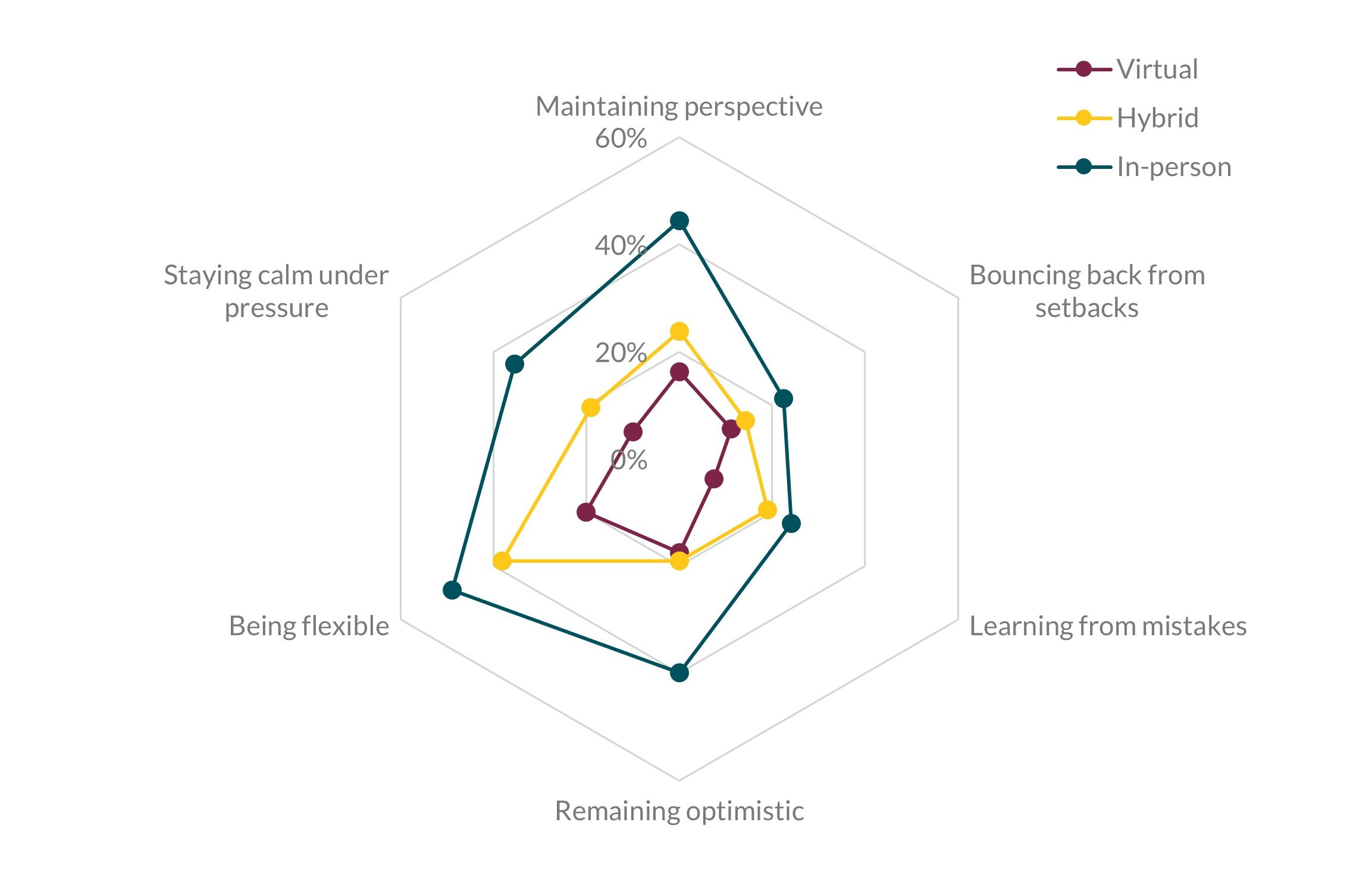## Mini basket to go here ##
Developing Resilience Behaviours with Immersive Learning
 Corporate International Service Learning experiences challenge employees to use their skills to help different purpose-driven organisations in other parts of the world. These valuable immersive experiences also enable participants to learn skills, develop new behaviours and foster a mindset that helps them to make the critical shifts required to navigate our complex world.
Corporate International Service Learning experiences challenge employees to use their skills to help different purpose-driven organisations in other parts of the world. These valuable immersive experiences also enable participants to learn skills, develop new behaviours and foster a mindset that helps them to make the critical shifts required to navigate our complex world.
The 2021 Emerging World Corporate International Service Learning (CISL) Resilience Study has provided an important opportunity for us to assess how these Immersive Learning experiences are impacting participants and develop the behaviours and mindsets needed to navigate times of uncertainty as well as gaining insights on what elements of CISL programme design have impact. The Study looks at survey responses from CISL programme participants of 5 programmes from 3 global organisations in different market sectors.
Our first blog in this series gives more in-depth details about the structure and design of the Study. Read here…
In this, our second blog, we explore how CISL experiences develop the behaviours associated with resilience.
To understand how CISL programmes are developing resilience behaviours in participants, we identified a set of resilience behaviours. In the survey we asked participants to state if these behaviours where positively impacted by their CISL experience. The resilience behaviours are:
- Maintaining perspective
- Bouncing back from setbacks
- Learning from mistakes
- Remaining optimistic
- Being flexible
- Staying calm under pressure
CISL DEVELOPS RESILIENCE BEHAVIOURS
The data shows that CISL programmes develop the resilience behaviours. As the chart below illustrates, some behaviours are impacted more strongly by immersive experiences, such as maintaining perspectives, being flexible and staying calm under pressure.

Having data that shows how resilience behaviours are being impacted is very helpful, but we are able to use this information further. By analysing the data against a range of programme design variables we can identify factors that enable us to strengthen specific areas of design. We are excited to be able to share some of these insights:
PROGRAMME FORMAT IMPACTS RESILIENCE BEHAVIOURS
Corporate International Service Learning (CISL) experiences are a form of Immersive Learning in which participants step out of their comfort zone and travel across international borders to apply their skills and expertise on real-life issues that have a social impact. Traditionally, these programmes have been in person, sometimes with a virtual element included. Since travel has been restricted with the COVID-19 pandemic, most CISL programmes that have continued, moved to a 100% virtual model. For the first time, we are able to look at the impact these changes have had on participants:
The data below looks at participants that strongly agreed to the questions about resilience behaviours alongside whether they completed their assignment face to face (In-person), in a blended face to face and virtual approach (Hybrid) or in a 100% virtual setting.

Perhaps unsurprisingly, the data suggests that in-person programmes have a greater impact, but it is certainly not time to write off virtual programmes. Insights from the Study show us how more consideration could be given to the programme design to account for the virtual setting to ensure a stronger impact on resilience measures. It is important to remember that this virtual format is new in CISL, it is creating an impact and we believe it is here to stay with some distinct advantages, for example how it makes programmes much more accessible.
SETTING LEARNING OBJECTIVES IMPACTS RESILIENCE BEHAVIOURS
Participants that had set learning objectives before their assignment are more likely to develop resilience behaviours. The chart below illustrates that when learning objectives are set there is greater impact across all resilience measures.

The insights gained through the 2021 CISL Resilience Study, enable us to further explore the relationships between programme design and impact. This can help organisations make changes to their CISL programmes that are needed to ensure they remain relevant in the current context and strengthen their impact on participants, business and wider society.
To learn more about our CISL impact assessment, or speak to a member of our team:






